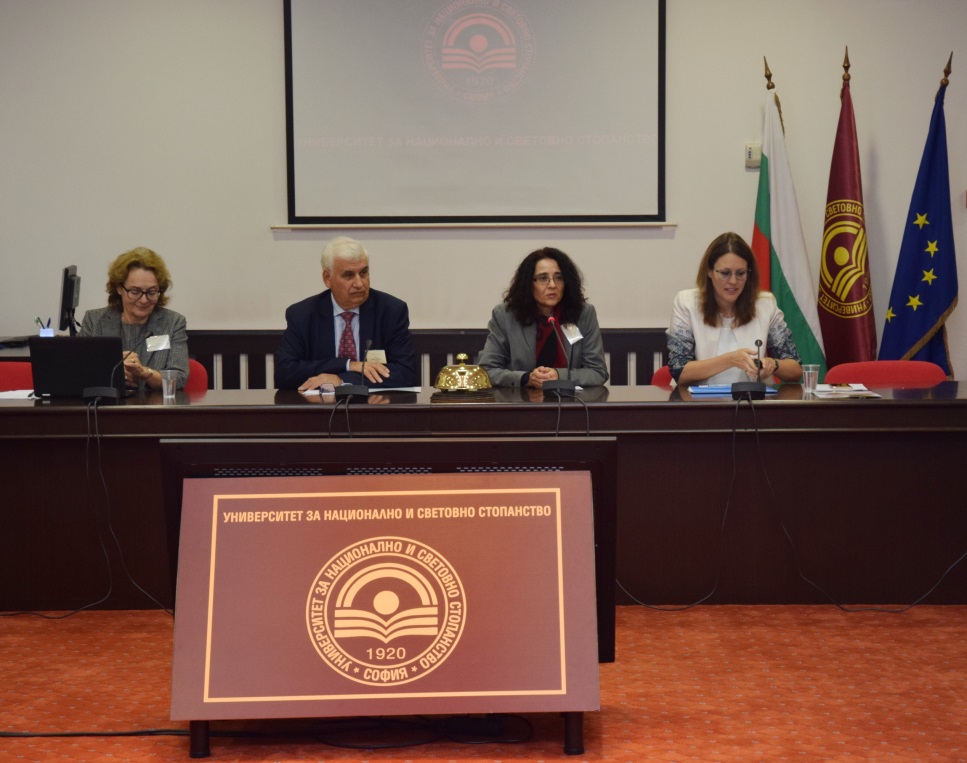International Conference on the Balkans and Europe between Integration and Particularism: Challenges and Prospects
Balkans and Europe between Integration and Particularism: Challenges and Prospects was the topic of the two days International Conference held in the Large Conference Hall. The Forum was organized by the International Economics and Politics Faculty jointly with the Bulgarian Political Science Association (IPSA). During the Conference Reports were delivered by representatives of the academic community from Bulgaria, Russia, Greece, Croatia, Macedonia, Romania, Kosovo.
In the Forum took part also Assoc. Prof. Dr. Rumyana Kolarova and Dr. Monika Panayotova.
Assoc. Prof. Dr. Maria Bakalova opened the Conference and greeted the participants on behalf of Assoc. Prof. Dr. Igor Damyanov, Dean of the International Economics and Politics Faculty. She expressed confidence that the Forum would be accompanied by interesting discussions. The topic is actual not only for the recently closed Bulgarian Presidency of the Council of the EU focused on the European integration process in the Western Balkan countries but also because the issue of relation and oppose of particular to common and particular to universal is central in the political theory and practice to understand the international politics and international relations, said Assoc. Prof. Bakalova.
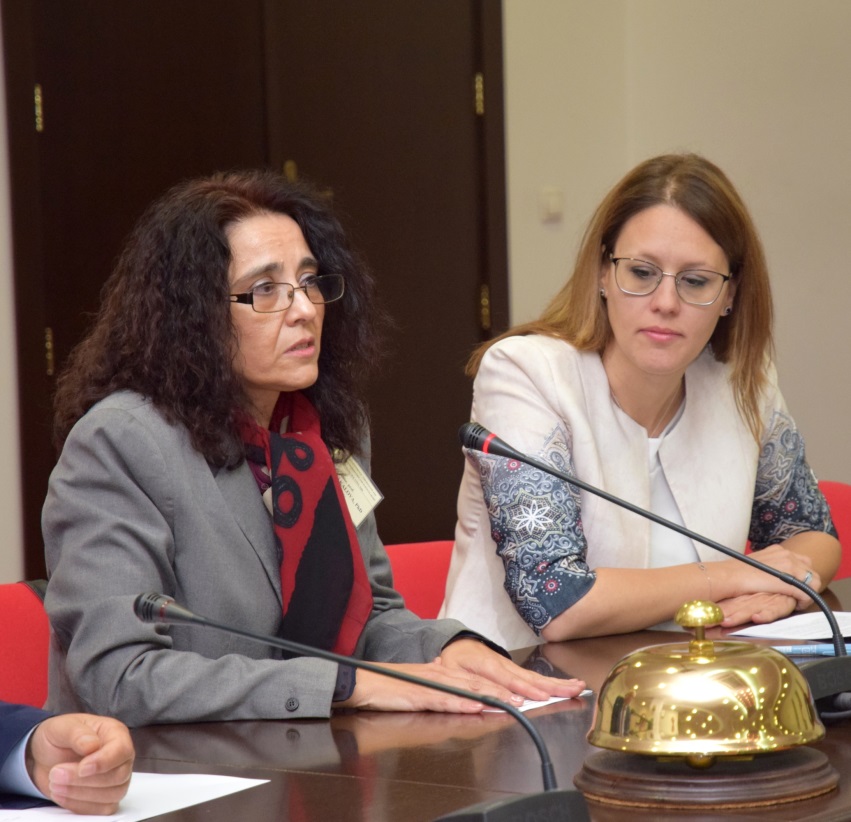 |
| Assoc. Prof. Dr. Maria Bakalova (on the left) |
Prof. Dr. Dinko Dinkov delivered a report on the Resolving Bilateral Issues in SEE under External Pressure: Are There any Risks for the European Prospects of the Western Balkans. He examined the role of geopolitical conflicts in the current historical moment and their impact on the process in the Southeastern Europe as well as the role of external interference to resolve the problems in the Balkan region. The international relations characteristic is determined by the conflict of interest between China, Europe, USA and Russia and the Balkans have been involved in the conflict as a region that is the relation between three continents but a region with unsolved historical problems, pointed out Prof. Dinkov. He made a review of the new geopolitical situation and the effect of external pressure on the Western Balkan countries.
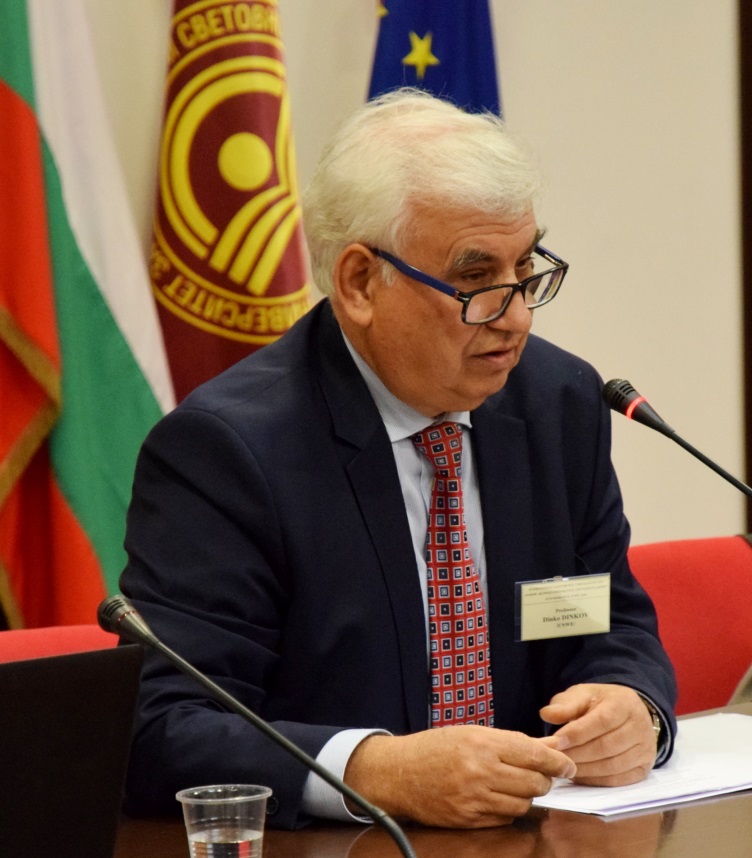 |
| Prof. Dr. Dinko Dinkov |
In her presentation on the European Perspective and Connectivity of the Western Balkans as a Specific Priority of the First Bulgarian Presidency of the Council of the EU, Dr. Monika Panayotova made an assessment of achievements during the Bulgarian Presidency as she outlined the major priorities and the reasons for choosing them, the European integration perspectives for the Western Balkans, etc. (in the picture below).
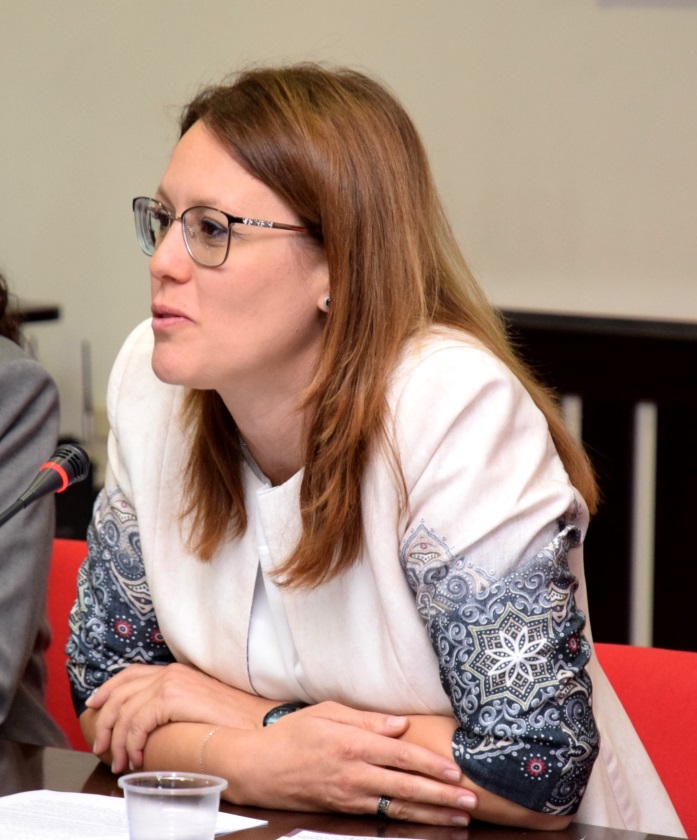 |
Assoc. Prof. Dr. Rumyana Kolarova presented a report on the Populism and Europeanization: Regional Dimensions.
The Conference work was focused on several thematic fields: bilateral relations in the Balkans: between historical mythology and pragmatism; connectivity and cooperation in the Balkans: projects and realities; particularism in the EU: between Brexit, Catalonia and Orban; ethno-politics and integration: dimensions, patterns and results in the EU and Western Balkans, etc.
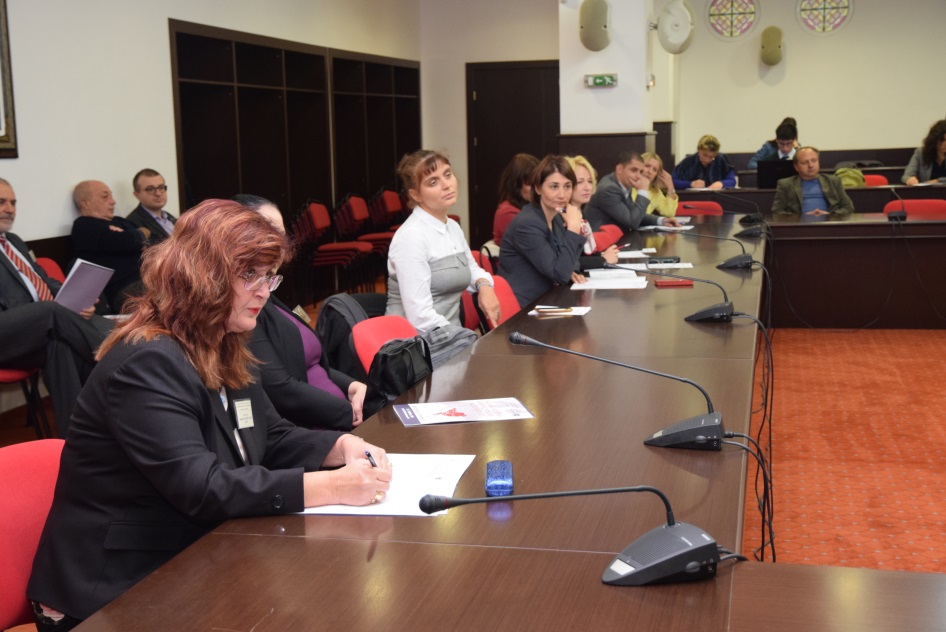 |
|
During the Conference. On the left: Assoc. Prof. Dr. Blaga Blagoeva, Head of the Political Science Department |
